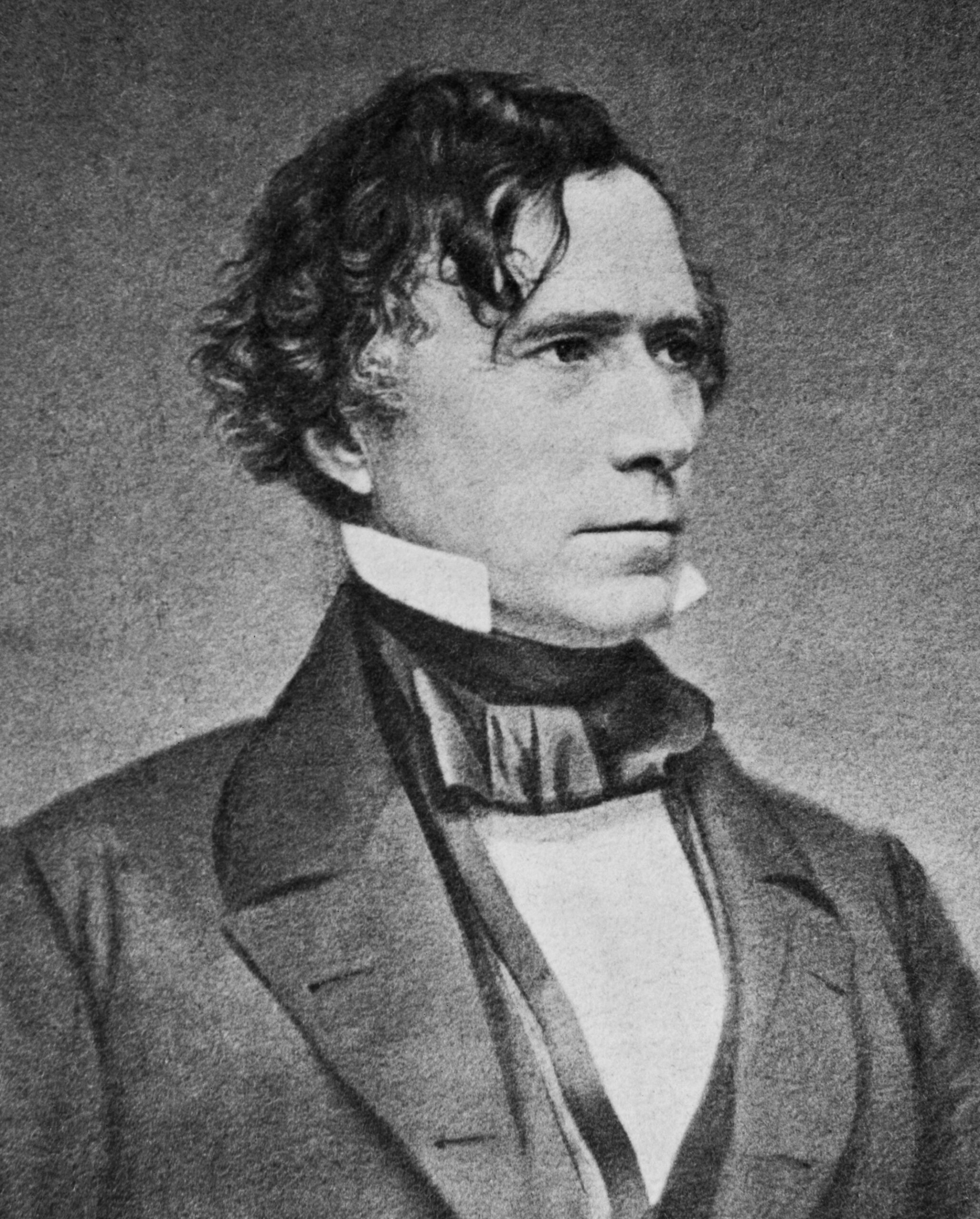Franklin Pierce, born on November 23, 1804, in Hillsborough, New Hampshire, rose from modest beginnings to become the 14th president of the United States. His presidency was a pivotal moment in American history, coinciding with the escalating tensions between Northern and Southern states. His decisions during this challenging period left a complex legacy that historians continue to analyze, underscoring the profound impact of his leadership.
Fun Facts:
- Early Life and Career: Pierce, a bright and ambitious student, attended Bowdoin College, where he formed lifelong friendships, including one with the renowned writer Nathaniel Hawthorne. After studying law, Pierce quickly advanced in politics, serving as a New Hampshire legislator, a U.S. Congressman, and a U.S. Senator. His early experiences and relationships played a significant role in shaping his political views and decisions.
- Military Service: During the Mexican-American War, Pierce was a brigadier general. Although his military career faced challenges, his service boosted his popularity and political reputation, contributing to his presidential nomination in 1852.
- Presidency (1853–1857): Pierce’s presidency focused on expanding U.S. territory, but his support for the Kansas-Nebraska Act, which allowed territories to decide on slavery, intensified sectional divisions. The act, a key point in his presidency, led to violent conflicts in Kansas and pushed the nation closer to the Civil War, underscoring the gravity of his decisions.
- Legacy: Pierce’s stance on slavery and his signing of the Kansas-Nebraska Act made him a controversial figure, especially as the country moved toward conflict. After his presidency, Pierce retired from politics and remained a subject of intense debate, with historians critiquing his inability to ease national tensions. This ongoing controversy underscores the uncertainty about his place in history.

